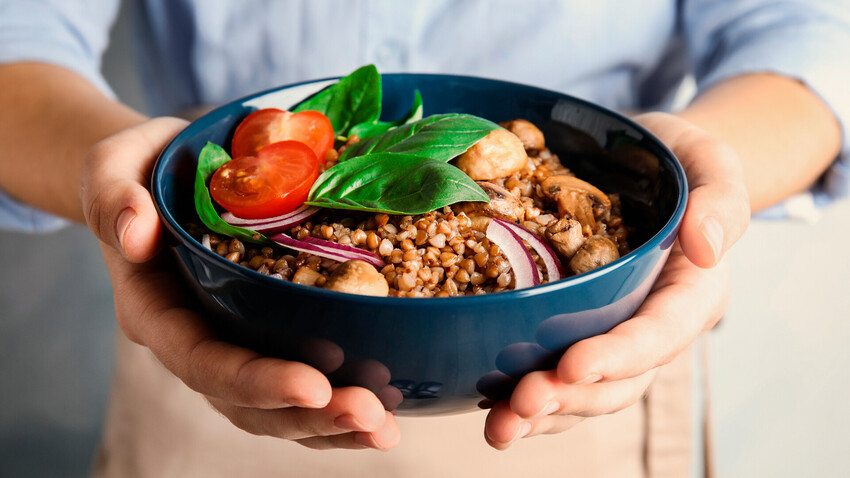
“The main problem of both traditional Russian and Soviet cuisines is that there are a lot of dishes full of carbohydrates. There’s potatoes, bread, sweet and savory pastries, pasta, as well as sweet items like jams and candies,” says nutritionist and dietitian Ekaterina Maslova. “Their abundance is understandable – such food is the cheapest, and it can quickly create the illusion of satiety. Though, not for long.”
After a ‘fast carbohydrate’ intake, however, blood sugar levels drop fast, and a person soon feels hungry again. As a result, they have snacks every hour or two, or have some tea with candy; they end up putting on more pounds, while energy levels go down.
“If you don’t want to gain weight and want to feel good, then you have to cut back dramatically on ‘fast carbohydrates’,” the nutritionist advises. “Ideally, you should replace them with complex carbohydrates that provide long-term satiety.”
In general, by 4 p.m. you should stop eating any items that are heavy on carbohydrates, even those that are healthy for you. Maslova suggests eating easily digestible proteins and non-starchy vegetables in the evening. If your goal is to lose weight, then you should only eat carbohydrates in the first half of the day, before 12 noon; and only for breakfast.
For a relatively healthy person without any significant problems, having three to four meals each day is ideal: a large and well-balanced breakfast, a hearty lunch, a light snack and a light dinner.
If you want to skip one meal, it would be physiologically correct for your body to skip dinner. However, according to Maslova, do not skip breakfast. This should be the heartiest meal of the day, because a person needs the majority of their nutrients and energy when the day begins, not at the end, when physical activity is at its minimum.
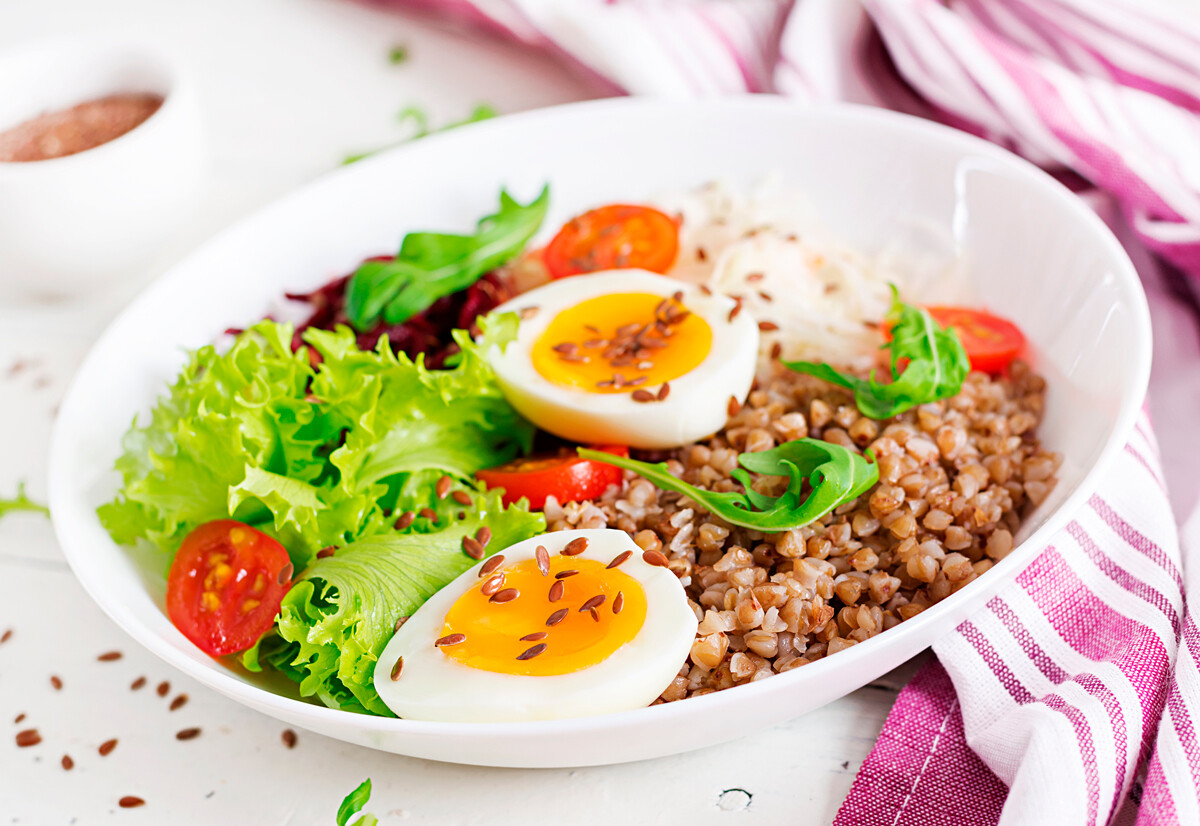
These complex carbohydrates offer satiety and energy, and they don’t cost much to make. At the same time, boiled buckwheat has high nutritional value. Apart from buckwheat, other complex carbohydrates that you can use for breakfast include oatmeal, but specifically that type which requires a long period of cooking, as well as pearl barley, or barley and millet porridge. You shouldn’t use semolina or raw oat flakes – these are ‘fast carbohydrates’ that don’t have high nutritional content.
Fats prolong the feeling of satiety, and you’ll easily make it to lunch without having tea with sugar. Ten grams is enough if you’re losing weight; 20 grams if you’re not.
Two boiled eggs, fried eggs or an omelet – depending on your preferences; at least two of your meals per day have to include protein.
Dietary fiber in the form of non-starchy vegetables and greens should be on your personal menu during every meal. You don’t need to buy expensive ingredients; it could as well be grated carrots with chopped cabbage or fresh/ boiled grated beetroot – simple and very healthy.
If you’re used to a heavier breakfast, you can add one or two slightly toasted whole grain pieces of bread with butter.
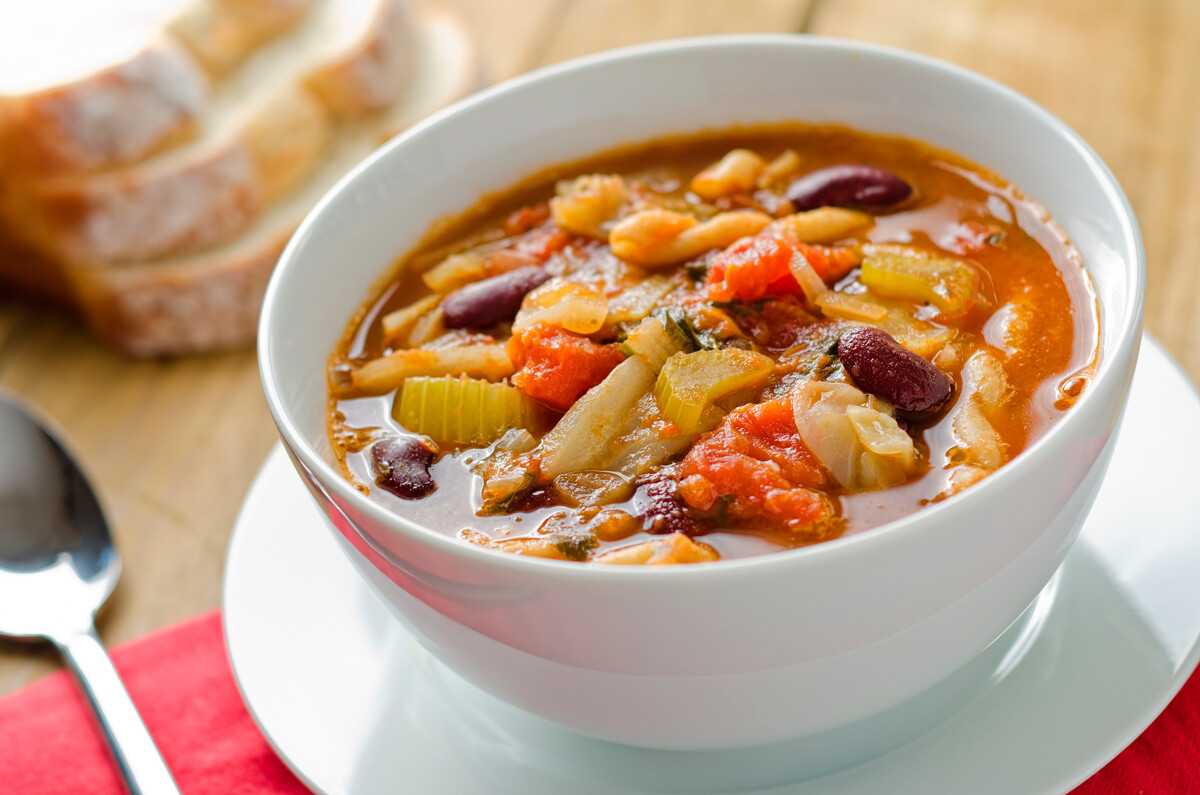
There’s a main rule with soups – it’s either a meat soup with vegetables, or a soup with something starchy and vegetables. You shouldn’t combine starches with red meat. These slow down each other’s breakdown and absorption by the body. One ideal option is a rich soup with beans, such as lean shchi with beans, or a simple rich meat-or-chicken stock without potatoes or carrots.
This source of complex carbohydrates is for those who are used to eating soups with bread.
If your lunch has carbohydrates (potatoes and carrots in shchi, bread to pair with your soup), then it’s better to prepare traditional Russian golubtsy (cabbage rolls) in its lean version – with rice and vegetables but without meat. If you’re ready to remove the potatoes from your shchi, then you can prepare traditional meat golubtsy.
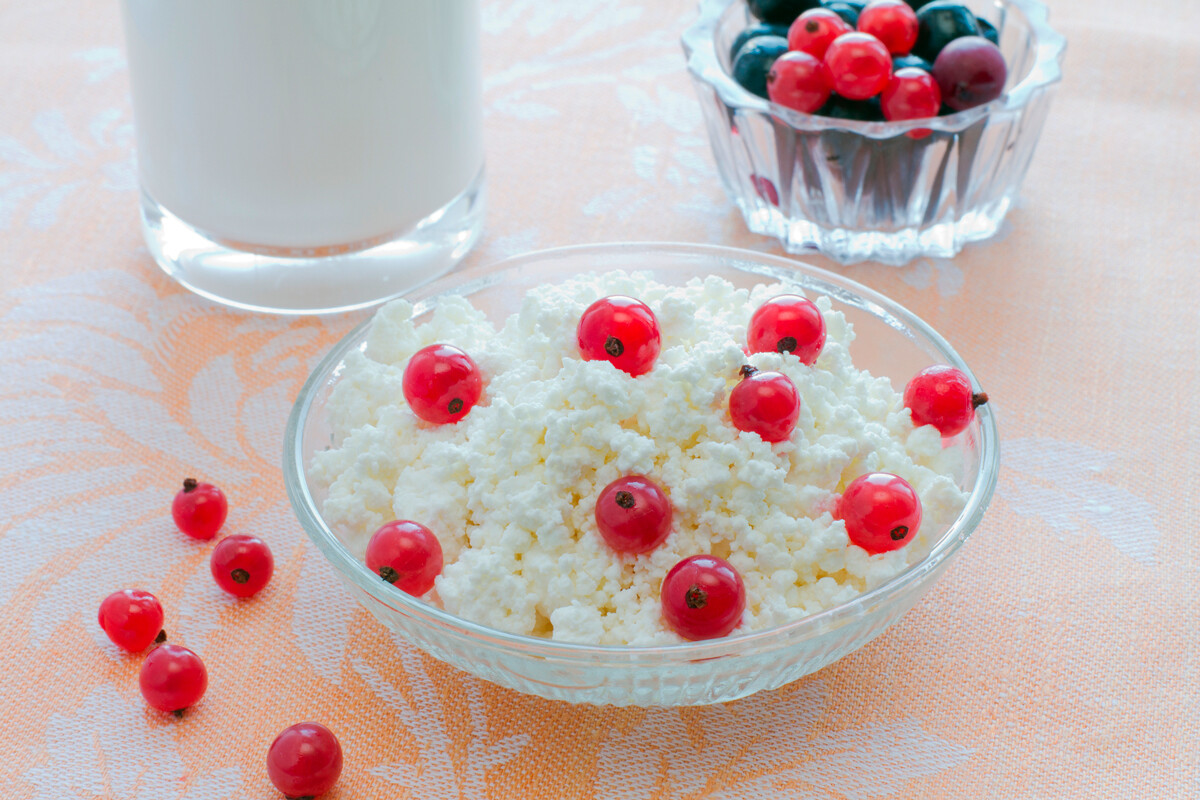
Unsweet, fresh or defrosted berries with cottage cheese, 10 nuts or a vegetable salad with vegetable oil will fit for a snack. Whole grain bread with red fish, caviar or slices of boiled/ baked chicken or turkey with a couple of slices of cucumber, or some lettuce, will also help you maintain your energy levels.
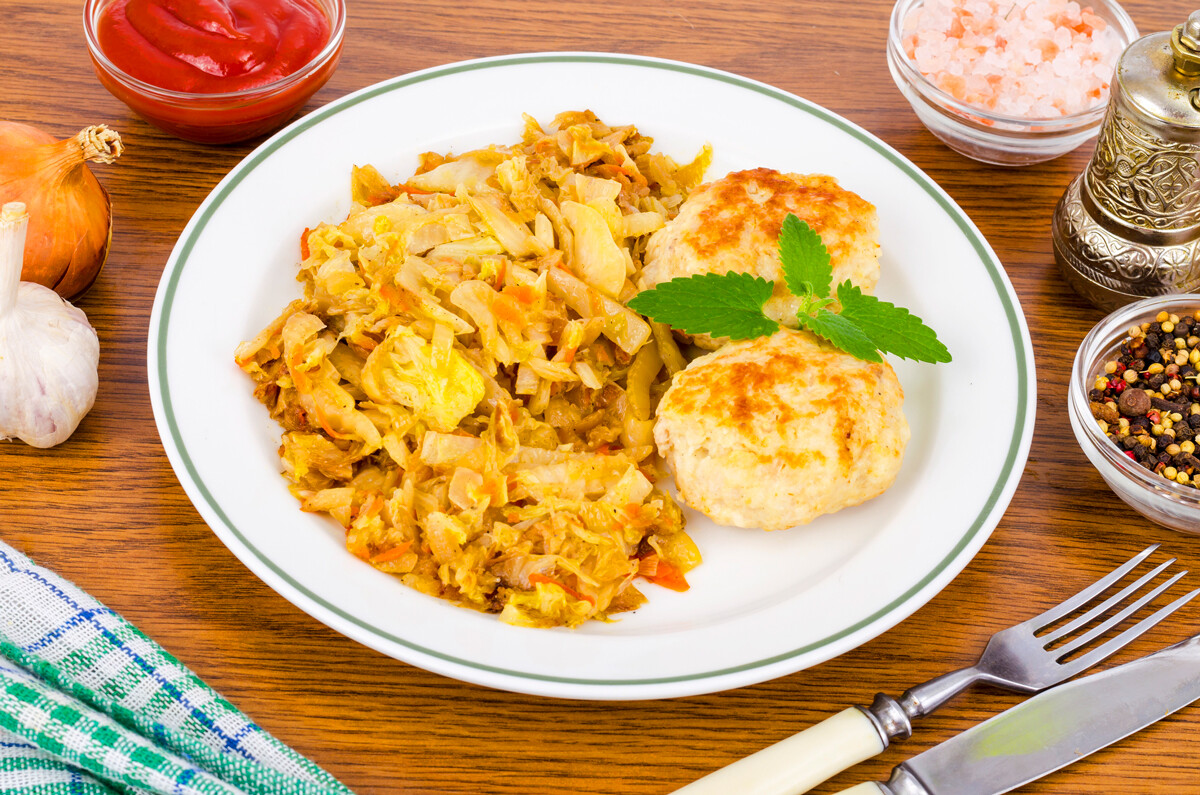
This is a favorite childhood dish for many, and it can be made with meat, poultry or fish. When preparing rissoles, you should avoid adding white bread or breadcrumbs into the mince. If you prefer rissoles without breading, you should pick something healthier, for example ground oat bran.
During the winter months, fresh and pickled cabbage have long been the main source of vitamins for the majority of people living in Russian villages. Cabbage makes for a great side dish that goes well with meat, and it’s much healthier than potatoes or pasta. You can stew fresh white cabbage, red cabbage or pickled cabbage. If you add forest mushrooms, it becomes the perfect side dish for any dinner.
Dear readers,
Our website and social media accounts are under threat of being restricted or banned, due to the current circumstances. So, to keep up with our latest content, simply do the following:
Subscribe to our Telegram channels: Russia Beyond and The Russian Kitchen
Subscribe to our weekly email newsletter
Enable push notifications on our website
Install a VPN service on your computer and/or phone to have access to our website, even if it is blocked in your country
If using any of Russia Beyond's content, partly or in full, always provide an active hyperlink to the original material.
Subscribe
to our newsletter!
Get the week's best stories straight to your inbox